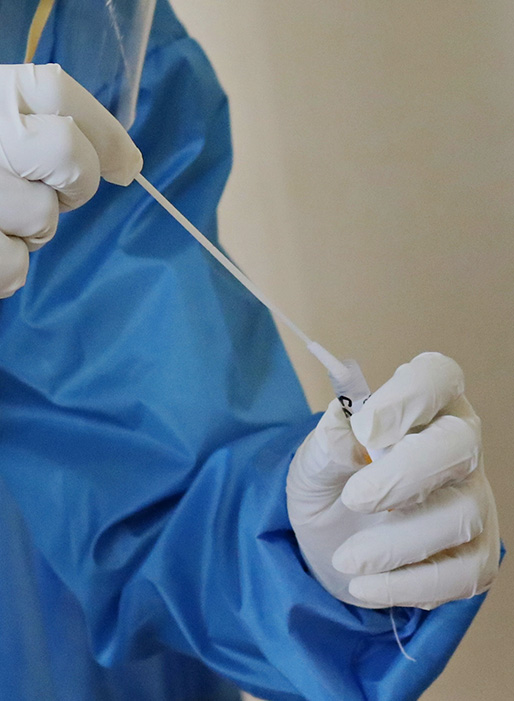Evacuations from Israel and High-Risk Locations Call +44 (0)1202 308810 or Contact Us →

Cholera Cases Continue to Rise Rapidly in Zambia and Ongoing Health Risks
11 Jan 2018
Cholera cases have continued to rise in Zambia since the outbreak began in autumn 2017. Lusaka, the country’s capital, has been most notably impacted. During this period, at least 67 people have died nationwide, 62 of these cases were reported in Lusaka. Zambian health authorities have recorded that 2,755 have undergone treatment for cholera in the capital; 2,514 people have been successfully treated and discharged. In total, 2,905 cases of cholera have been reported nationwide since the outbreak began.
Key Points
- Zambia continues to record new cholera cases, with the majority reported in its capital, Lusaka.
- At least 67 people have been killed since the outbreak began in Autumn 2017; 62 deaths have occurred in Lusaka.
- Zambian authorities have declared a curfew in Kanyama, a slum area of the capital most impacted by the outbreak.
Situational Summary
Health implications
Cholera cases have continued to rise in Zambia since the outbreak began in autumn 2017. Lusaka, the country’s capital, has been most notably impacted. During this period, at least 67 people have died nationwide, 62 of these cases were reported in Lusaka. Zambian health authorities have recorded that 2,755 have undergone treatment for cholera in the capital; 2,514 people have been successfully treated and discharged. In total, 2,905 cases of cholera have been reported nationwide since the outbreak began.
The original outbreak was initially linked to contaminated water from shallow wells. However, investigations have since indicated that contaminated food was the initial main culprit. According to the World Health Organisation (WHO), the outbreak began in early October, firstly in the sub-district of Chipata in Lusaka, before spreading to the Kanyama sub-district (also in the capital) around 9 October 2017. Small outbreaks have also been reported in neighbouring Malawi and Tanzania, though it is unclear if the cases stem from the outbreak in Zambia.
What is Cholera?
Cholera is an acute diarrhoeal disease. It can kill within hours unless it is sufficiently treated. While figures are not entirely clear, it has been estimated that between 1.3 million and 4.0 million cases of cholera occur every year, with between 21,000 to 143,000 deaths attributed to the disease. Cholera occurs in Africa, Asia, Central and South America, and more recently, in parts of the Caribbean. The US Centre for Disease Control (CDC) reports that global cases of the disease have risen steadily since 2005. Most of those infected will have few or zero symptoms; these cases can generally be treated with a rehydration solution. However, in severe cases, rapid treatment with intravenous fluids and antibiotics is required. It can take between 12 hours and five days for an individual to show symptoms after ingesting contaminated food or water. Even for those with mild or no symptoms, the infectious bacteria can live in an individual’s faeces for up to ten days.
What is Being Done?
Authorities have announced that a multi-sectoral team has been deployed to control the epidemic. An oral cholera vaccination programme has been implemented, in addition to increasing access to clean water points, burying shallow wells, and deep-cleaning market areas to prevent food contamination. Notably, three restaurants belonging to the South African fast-food chain Hungry Lion have been shut after their food tested positive for the bacterium that causes cholera.
The start of the school year has been postponed and all public gatherings (of five people and more) and street vending have been banned. A night-time curfew, running from 1800 to 0600, has been imposed in the densely populated Lusaka slum of Kanyama, one of the worst affected areas. However, reports suggest that restrictions are not being fully adhered to. The military have also been deployed to assist in efforts to control the disease.
Some in Zambia have criticised the government’s response for focussing on symptoms rather than causes. In the longer term, Zambia, and other locations where cholera is present, need to ensure the provision of potable water and sufficient sanitation to prevent outbreaks occurring. Further literacy and education will be required for the Zambian population to ensure that this outbreak is overcome and does not return.
SECURITY ADVICE
HealthModerateWhat should you do?
These five basic steps are effective measures for cholera prevention.
Travellers to Zambia should remember to employ the above to prevent or limit the potential for infection from cholera. It should also be noted that there are vaccination options available for the disease. All travellers should seek medical advice at least six weeks before travelling to understand if any vaccinations should be taken for travel to Zambia.
The primary security threat to travellers to Zambia remains petty crime. A variety of criminal activity is evident throughout the country, from petty thievery to violent carjackings and burglaries. It is recommended for travellers to pre-arrange a locally-vetted driver and vehicle prior to their arrival in country, as local transport infrastructure is weak. For all travel to Zambia, Solace Global would advise that clients seek pre-travel security advice, and employ travel-tracking technology with an intelligence feed in order to stay up to date on recent developments.